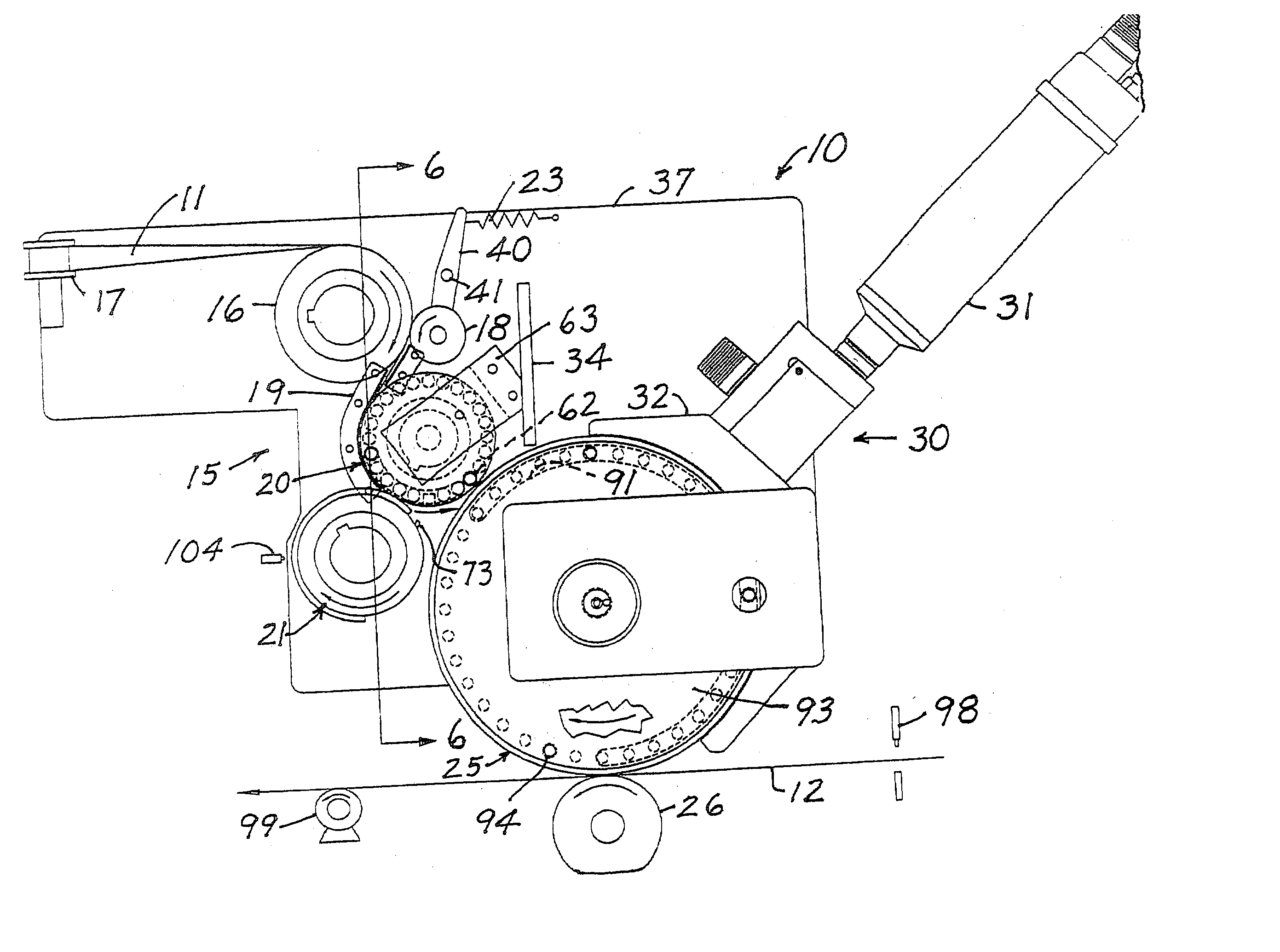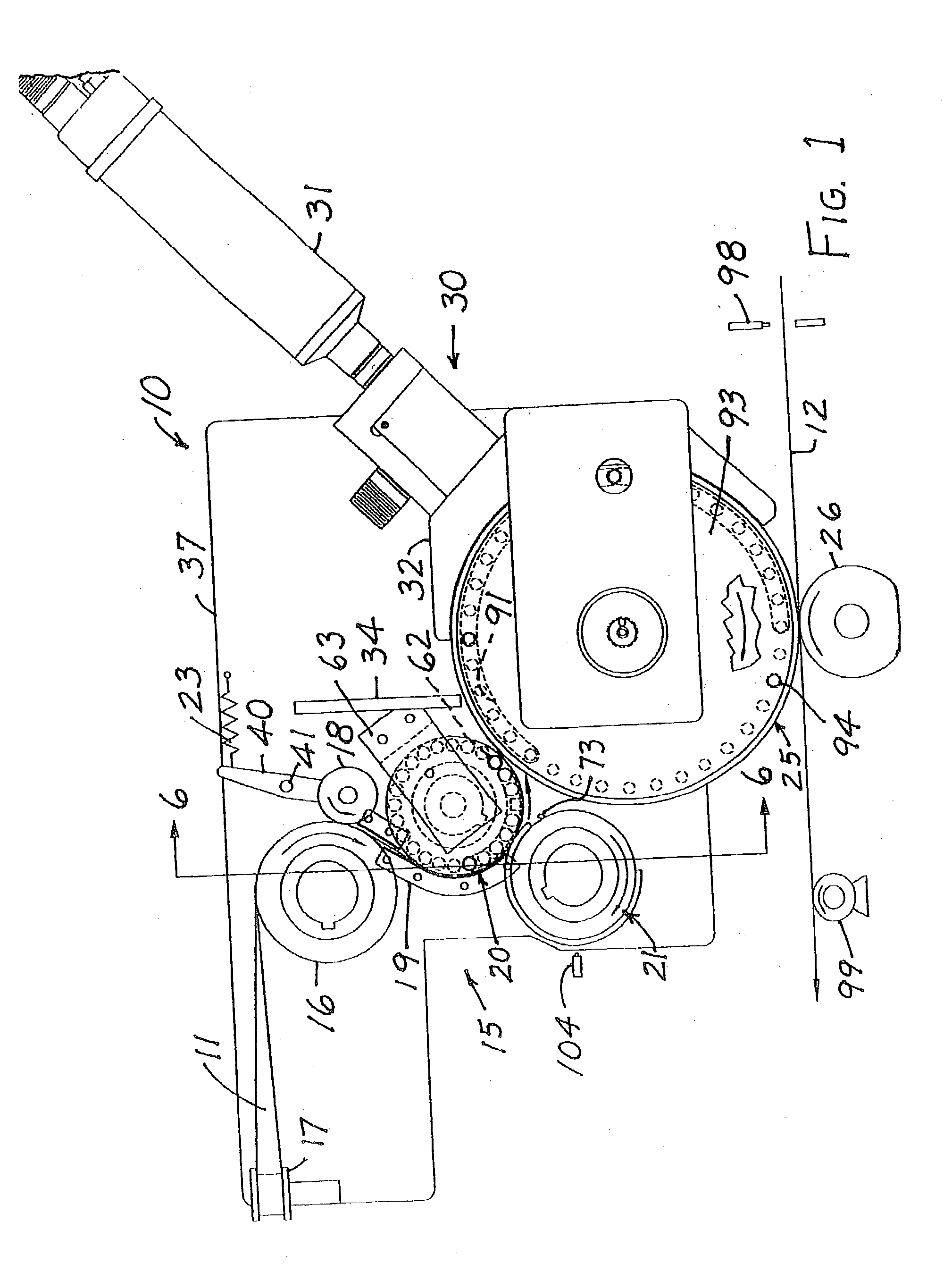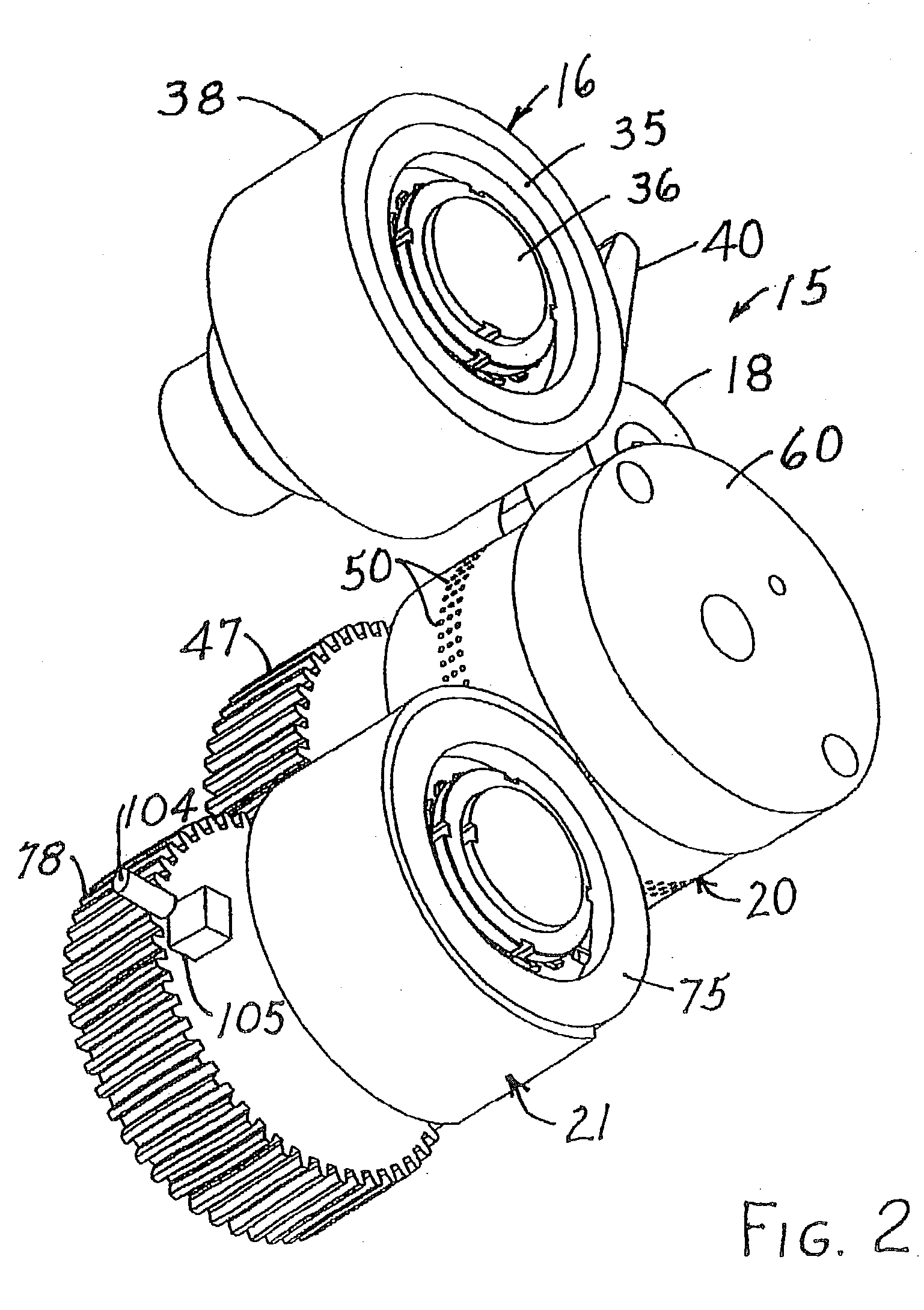Web material application methods and systems
- Summary
- Abstract
- Description
- Claims
- Application Information
AI Technical Summary
Benefits of technology
Problems solved by technology
Method used
Image
Examples
Embodiment Construction
[0018] For ease of understanding, the following terms used herein are described below in more detail:
[0019] "Web material" (which may be used interchangeably herein with "tape") may include, but is not limited to, various ribbon material, various web materials, and various widths of material, particularly tapes with an adhesive such as a hot melt adhesive, a hot melt pressure sensitive adhesive, a hot melt remoistenable adhesive, a water dispersible hot melt adhesive, a biodegradable hot melt adhesive or a repulpable hot melt adhesive, or heat activatable adhesives. Examples of these adhesives are any typical hot melt adhesive such as an ethylene-vinyl acetate copolymer (EVA-based) hot melt adhesive; EMA-based hot melt adhesive (ethylene methylacrylate); EnBA-based hot melt adhesive (ethylene n-butyl acrylate); hot melt adhesive based on polyamides; hot melt remoistenable adhesive based on polyamides and copolyesters; hot melt adhesives based on polyethylene and polypropylene homopo...
PUM
| Property | Measurement | Unit |
|---|---|---|
| Time | aaaaa | aaaaa |
| Length | aaaaa | aaaaa |
| Ratio | aaaaa | aaaaa |
Abstract
Description
Claims
Application Information
 Login to View More
Login to View More - R&D
- Intellectual Property
- Life Sciences
- Materials
- Tech Scout
- Unparalleled Data Quality
- Higher Quality Content
- 60% Fewer Hallucinations
Browse by: Latest US Patents, China's latest patents, Technical Efficacy Thesaurus, Application Domain, Technology Topic, Popular Technical Reports.
© 2025 PatSnap. All rights reserved.Legal|Privacy policy|Modern Slavery Act Transparency Statement|Sitemap|About US| Contact US: help@patsnap.com



